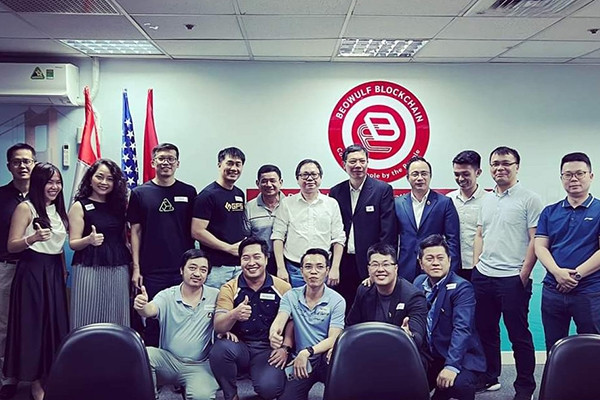The abuse of real people when building virtual idols made fans in China react, while experts also expressed concern.
Earlier this month, Carol, a member of the virtual group A-Soul, suddenly disappeared. The units behind the group are ByteDance, Nuverse and the artist management company YH Entertainment Group. The group’s representative said that the reason Carol stopped working was related to the health and learning situation of the real person behind this virtual character.

Image of virtual female singer Carol. Image: Handout
However, the removal of Carol caused thousands of fans to react. “My world just fell apart. I never thought this would happen,” said Henry Hu, a university student in Guangxi province and a fan of Carol.
Virtual idols are a fast-growing industry in China. These characters are a combination of AI and real people behind. Many people now turn to virtual idol fans and spend thousands of yuan to support. Meanwhile, game studios, video networks and online stores are also racing to create their own idols.
A-Soul is one of the most popular bands in the virtual environment. The group amassed millions of fans over the past two years on ByteDance’s Douyin and video streaming platform Bilibili.
The dismissal of Carol means the departure of an unknown singer behind it. This move is considered a surprise to fans, because they always think that virtual idols cannot be deleted, at best they can be replaced by someone else. On Weibo, Carol’s disappearance and A-Soul’s issue became a hot topic of discussion, with negative comments directed at the development team.
Many people started attacking the companies that created A-Soul, like ByteDance, and demanded clarification. Others even filed complaints, claiming that harsh working conditions, low wages, long hours of performances… could be the reason Carol disappeared. The A-Soul production team denied the allegations, but admitted Carol had performed until midnight on the last two shows before quitting.
The problem of the billion-dollar industry
China’s virtual idol industry is worth 107.5 billion yuan ($16 billion) in 2021 and is expected to triple by 2023, according to market research firm iiMedia Research.
This is a model that combines technology and entertainment, using real people to sing or livestream, but not revealed but through animated avatars. This model is often much cheaper than turning a real person into a star, according to asset management firm Cinda Securities.
In the case of A-Soul, the performers behind the virtual idols receive only a fixed monthly income plus a portion of bonuses or a percentage of the sales of a live broadcast.
Han, 26, who lives in Heilongjiang province and is a fan of A-Soul, said he spent 300 yuan (one million dong) to support the group every time he livestreams. “I don’t consider them any different from idols who are real people, because both bring happiness in certain ways,” she said.
Hu, a fan in Guangxi, said he spent more than 10,000 yuan (34 million dong) to support Carol in performances or buy goods sold by Carol.
The fan’s enthusiasm helped the song Quiet of A-Soul attracted more than 200 million views on Douyin last December. The group’s first MV also has more than 5.3 million views on Bilibili.

A-Soul – one of the popular virtual music groups in China. Image: Handout
Carol’s disappearance leaves supporters disappointed and skeptical that one day, other virtual idols will also die in a similar way. “The controversy over A-Soul exposes the problem of the virtual idol field, which ultimately relies on real people to operate,” commented Zhang Yi, CEO of iiMedia Research. “Incidents like this will continue. Some companies will make mistakes when operating, as the field of virtual idols gets hotter and hotter.”
However, experts say that it is too early to talk about failure. In fact, the field of virtual idols is attracting attention and there are also many leading companies such as Tencent, Baidu or Alibaba participating. Chinese regulators have also moved to encourage. In its 14th five-year plan launched earlier this year, Beijing asked the China Radio and Television Administration to promote greater use of virtual people in the future.
Bao Lam (according to SCMP)
at Blogtuan.info – Source: vnexpress.net – Read the original article here



